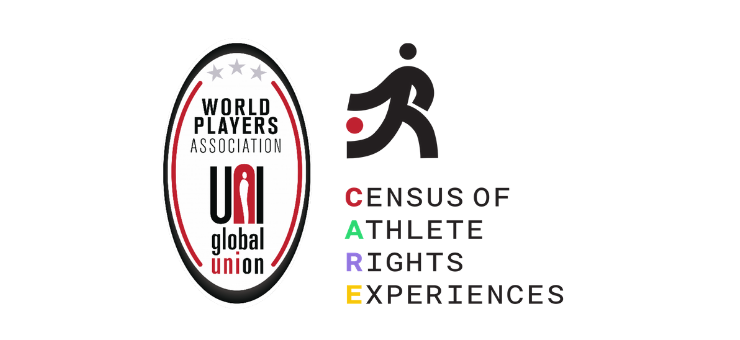On #HumanRightsDay, World Players Association launches the first global study on child athletes' experiences

Geneva, 10 December 2019 – On this year's #HumanRightsDay - and celebrating the 30th Anniversary of the Convention on the Rights of the Child - the World Players Association, in collaboration with Loughborough University, has launched the first global Census on Athlete Rights Experiences (Project CARE). The pilot study is the first to look into the childhood experiences in organised sport of current professional athletes associated with the worldwide player union movement.
"Project CARE is part of the World Players' vision to champion the dignity of the player and the humanity of sport. Participation in sport should be an overwhelmingly positive experience for everyone - particularly for children. The sad reality is that from a policy point of view, the institutions that govern sport have ignored their responsibility to put children's best interests at the top of their priorities. The pursuit of medals, records and money should not overrule the fundamental rights of children in sport", said Brendan Schwab, Executive Director of the World Players Association.
Project CARE is a two-year project aiming to change the way that the rights of child athletes are promoted and protected throughout world sport. The project involves a pilot study and the formulation of clear recommendations to sport governing bodies, governments and player associations for making sport safer for child athletes. The survey is available in five languages (English, Spanish, French, Portuguese and Japanese) and the results are expected on Spring 2020.
"In recent years, we've witnessed more than 300 women and girls in USA gymnastics coming out about abuse, the shocking serial abuse case of the Afghan footballers and the tragic death of 10 young footballers at Flamengo's training center in Brazil. We cannot wait for the next scandal to surface. The CARE Survey is a first attempt to proactively ask professional athletes about their experiences when they were child athletes. Our goal is to build recommendations that will help prevent child rights violations from happening in the first place in the world of sport. We want to build a global baseline to understand what contributed to children's rights being protected - or violated - in the world of sports", said Andrea Florence, Child Athlete Wellbeing and Protection Officer of the World Players Association.
Currently, Project CARE includes the participation of the Fédération Internationale des Associations de Footballeur Professionnels (FIFPro) the International Rugby Players (IRP), Federation of International Cricketers Associations (FICA), Japan Professionnal Baseball Players Association (JPBPA), EU Athletes along with their affiliates The Cyclist Alliance, Associación de Jugadores de Fútbol-Sala, and the Norwegian Players' Association (NISO), as well as the Women's National Basketball Players Association (WNBPA).
"No matter what their experience was - we encourage players to participate. The survey is anonymous. We know some questions might be distressing, so we are making sure that local services and self-care resources, such as local psychological or emotional support, are effectively communicated to survey participants," commented Gigi Alford, Director of Sport and Human Rights of the World Players Association.
The survey includes sections to assess respondents’ demographic profile; recognition of their rights; factors related to their development; support for their individual and collective power, participation and voice; experiences of different forms of violence (physical and emotional as well as sexual harassment, abuse and exploitation); experiences of help and protection; current sporting performance and indicators of personal well-being.
Dr. Daniel J. A. Rhind, Reader in Psychology at Loughborough University, co-author of the International Safeguards for Children in Sport, and lead researcher on Project CARE said "one of the main challenges to developing safeguarding strategies at the global level, and making sure these are effective in promoting a positive athlete experience, is the current lack of data. We need to listen to the childhood experiences of current professional athletes such that we can better understand the prevalence of various experiences, key influencing factors and the legacy of these experiences for psychosocial well-being and performance.”
Video (English):
For more information:
Andrea Florence
World Players' Child Athlete Wellbeing and Protection Officer
+55 11 98420 0025

